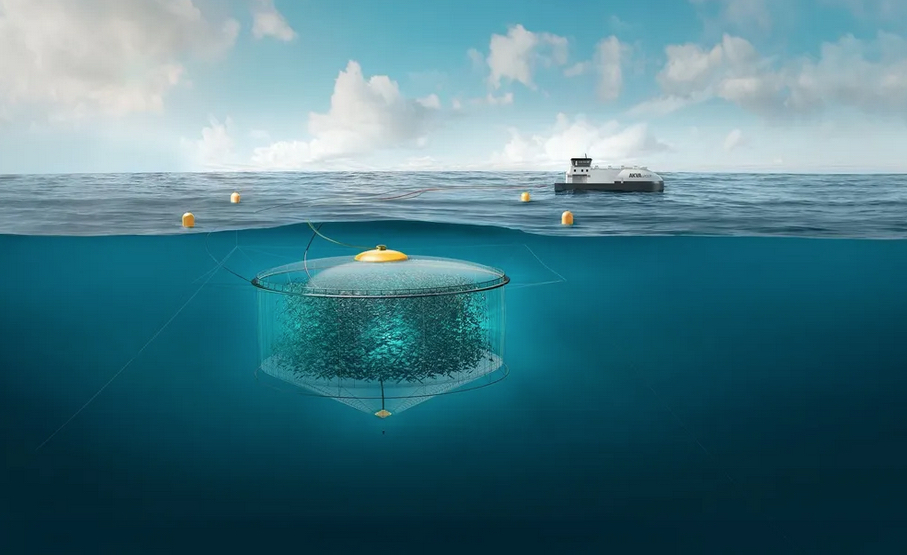AKVA sells its stake in subsea venture

Aquaculture technology group AKVA has sold its minority stake in Atlantis Subsea Farming, a joint venture with fish farmer SinkabergHansen, but retains ownership of the proprietary technology that underpins the project.
Atlantis Subsea Farming (ASF) was set up to create submersible cages for salmon, to keep the fish at a lower level in the sea – at a depth of least 10-15 metres – in order to protect them against sea lice, which are normally found nearer the surface.
The Atlantis cages use an air dome in order to allow the salmon to refill their swim bladders. The cages have a floating collar on the surface of the sea with the cage itself moored below it, in a system that was developed as part of AKVA’s earlier Nautilus project.
AKVA owned 33.3% of ASF, with SinkabergHansen and Egersund Net, now a wholly-owned subsidiary of AKVA, each owning a further third of the equity. Egersund has also sold its equity in the venture.
AKVA said the sale of the shares to SinkabergHansen has created an estimated profit of NOK 35m (£3m). As a part of the transaction, AKVA will become the owner of the technology that has been developed in the project.
A spokesperson for the company said: “We have had a great collaboration with SinkabergHansen in this development project and we have developed new technology that we are now in the process of commercialising, but we do not produce salmon, and it was therefore natural for us to sell when the licence was converted into fish production.”
The move follows the decision by Norway’s Directorate of Fisheries that the development licence granted to ASF in 2018 can be converted to a normal production licence, allowing SinkabergHansen to either produce fish commercially using the submersible system, or by using conventional cages.
In November 2021, SinkabergHansen announced that the Atlantis experiment has proved successful so far, with six units of 160,000 fish each released into submerged cages in April of that year and no lice infestation reported.


